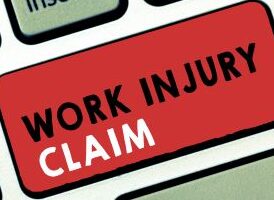Link Between Daylight Saving Time and Workplace Injuries

On March 9, we “sprang forward,” pushing our clocks up another hour for daylight saving time. A lot of people hate losing an hour, as it messes up their internal biological clock.
The hour of lost sleep is more significant than many people realize. It can affect your body in many ways. The loss of sleep can affect a person physically and mentally, resulting in a higher risk for workplace injuries.
According to the National Safety Council, nearly 70% of employees are tired at work. They tend to experience fatigue and sleep issues, increasing the risk of workplace injuries. This means workers and employers need to be aware of the possible effects on safety caused by daylight saving time changes.
It can take the body about one week to adjust to daylight savings time. The body needs time to figure out its new biological clock for sleeping, eating, and activity. Until the body has fully adjusted, people can have trouble falling asleep and staying asleep. They may also be waking up at the wrong time, which can make things difficult when a person has to be at work at a certain time. The time change can lead to sleep deprivation and reduction in performance.
The study also found that more injuries happened on the Monday after daylight saving time went into effect when compared to other days. In addition, the injuries were more severe. The daylight saving time switch means that workers get 40 minutes less sleep, resulting in an almost 6% increase in workplace injuries as well as roughly 68% more workdays lost to injuries.
Workers can also experience somewhat higher risks to their health after the time changes. Health issues include an increased risk of heart attacks, strokes, and mood disturbances.
How Employers Can Help
Employers can be a helpful resource to workers struggling with the effects of daylight saving time. Here are some reminders that they can relay to their teams to help maintain productivity and reduce workplace accidents:
- Higher health and safety risks occur several days after daylight saving time due to disturbances to circadian rhythms.
- Allow one week for the body to adjust sleep times and circadian rhythms after the time change. Employers should consider reducing demanding physical and mental tasks as much as possible that week to allow workers to adjust.
- Be vigilant while driving and performing work duties. They may be sleepier and at risk for making an error that can cause a car crash or other accident.
Contact a New Jersey Personal Injury Lawyer Today
Daylight savings time can have a huge impact on everyone. Workers and employers need to be aware of the possible issues and make adjustments accordingly.
Injured at work? Get the legal help you need from a Morristown work-related accidents attorney from The Law Offices of Michael P. Burakoff. We can advise you of your legal rights and guide you through the process of recovering compensation for the injuries you have suffered.
Schedule a consultation with our office today by filling out the online form or calling (973) 455-1567.
Source:
osha10hrtraining.com/blog/worker-safety-articles/workplace-injuries-increase-after-time-change/
